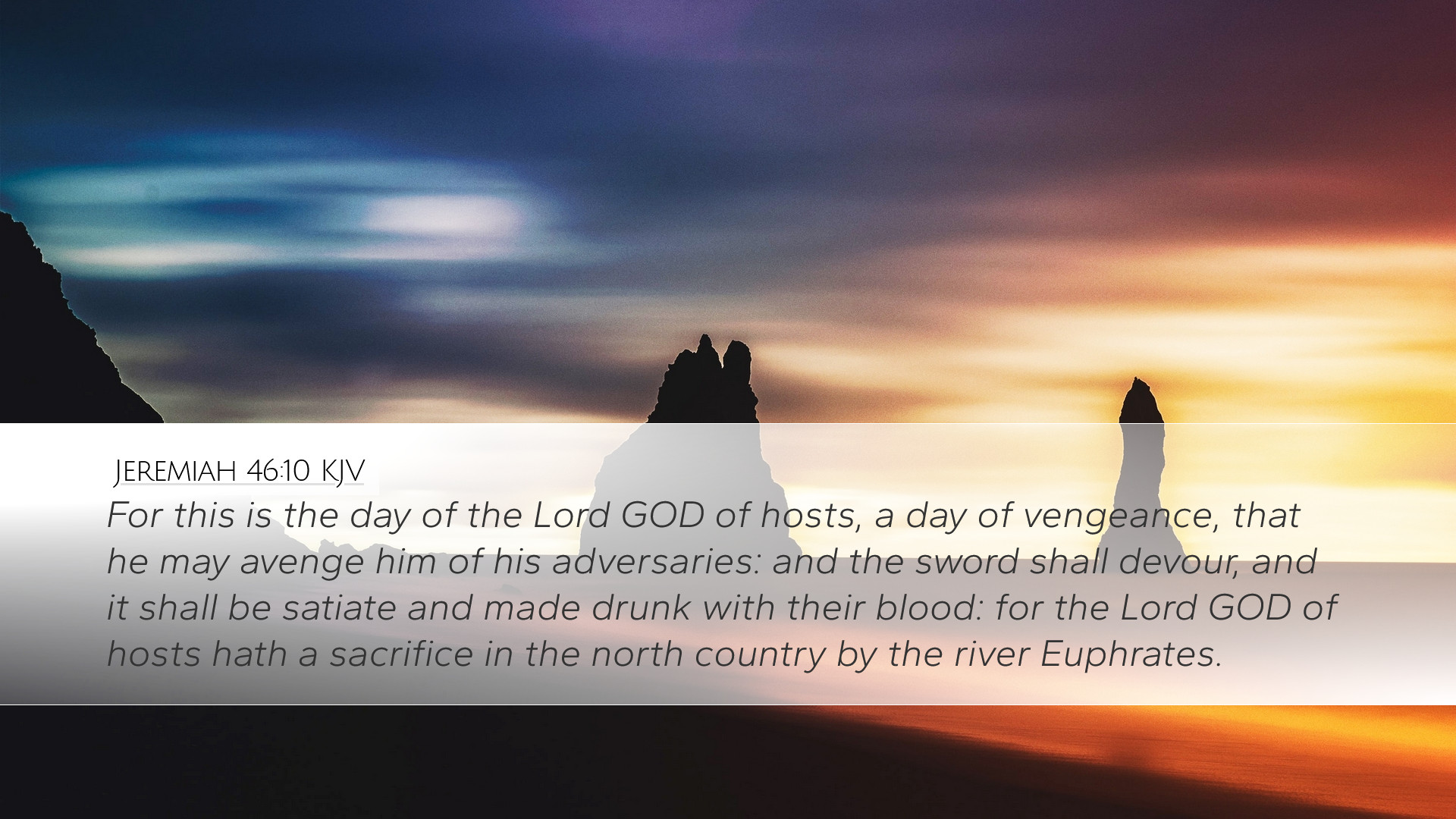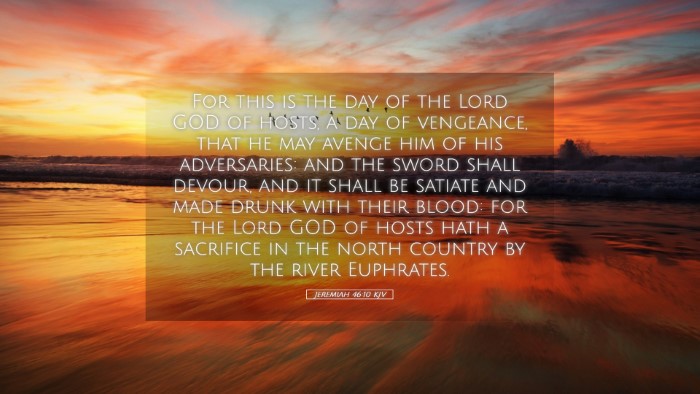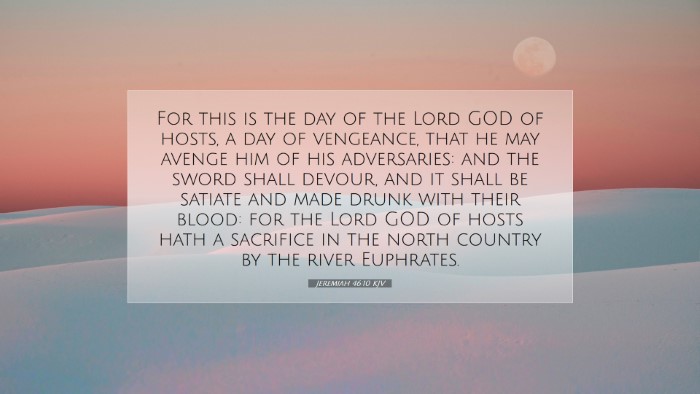Commentary on Jeremiah 46:10
In Jeremiah 46:10, we encounter a profound declaration concerning the Day of the Lord, specifically in relation to Egypt’s impending judgment. This verse reads, “For this is the day of the Lord GOD of hosts, a day of vengeance, that he may avenge himself on his adversaries: and the sword shall devour, and it shall be satiated and made drunk with their blood: for the Lord GOD of hosts hath a sacrifice in the north country by the river Euphrates.”
Contextual Background
Understanding this verse necessitates a grasp of the historical context surrounding the prophecies of Jeremiah. The Babylonian Empire was rising, threatening the stability of surrounding nations, including Egypt. Jeremiah’s prophecies served both as a warning to Israel and a declaration of God’s sovereignty over the nations. This particular verse stands as a pivotal point within the prophecies against Egypt, reflecting the broader theme of divine retribution and the unfolding of God’s plan through judgment.
Key Themes
- Divine Judgment: The 'day of the Lord' is a recurring theme in the prophetic literature, symbolizing a time when God’s justice is unequivocally enacted against sin and unrighteousness. Jeremiah articulates this notion by emphasizing that this moment is laden with vengeance, indicating that God will exact punishments upon His enemies.
- Vengeance: The term 'vengeance' highlights God's fighting against those who oppose Him. This concept can be unsettling, yet it assures the faithful that God will not remain passive while evil prevails. Matthew Henry notes that divine retribution is an affirmation of God's holiness and justice against wickedness.
- The Sword of Judgment: The imagery of the sword consuming and being drenched in blood serves to convey the ferocity and intensity of judgment that will befall Egypt. Albert Barnes stresses the inevitability of the consequences of rebellion against God and how His justice is fulfilled not merely through spiritual means but can also manifest in physical destruction.
- Sacrifice at the Euphrates: The verse concludes with a statement about a sacrifice in the northern territory at the Euphrates River. Adam Clarke interprets this as a profound metaphor for the devastation that will occur — the destruction of Egypt will be as a sacrifice laid upon the altar of divine justice.
Theological Reflections
This scripture invites significant theological reflection regarding God’s character. The idea that He will avenge Himself on His adversaries raises questions about His patience, long-suffering, and ultimately, His righteousness. The tension between God’s love and His necessary judgment can provide a rich field for exploration in homiletics and pastoral care.
Moreover, the concept of God's impending judgment ushers in the discourse of hope and assurance for believers. Understanding that God actively works against injustice can be a source of comfort for those feeling oppressed or marginalized in the present age. It provides a reassuring reminder of God’s active role in history, contrary to the nihilistic tendencies in contemporary thought.
Practical Implications for Ministry
For pastors and theologians, this verse serves as a critical reminder of the weight and reality of God's judgment. It encourages the faithful to be vigilant and intentional in their spiritual practices, embracing the call to righteousness. This could lead to various applications, including:
- Proclamation of God’s Judgment: Teaching congregations about the realities of God's judgment should be done with sensitivity but also with urgency, emphasizing the need for repentance and the assurance of God's justice.
- Encouraging Righteous Living: The call to holiness becomes evident through a recognition of the consequences of sin. Encourage the community to live lives reflective of God's character and purposes.
- Hope Through Judgment: While emphasizing God's judgment, it is paramount to connect this message with the hope offered through Christ, who stands as an advocate for sinners and provides a path of reconciliation.
Conclusion
Jeremiah 46:10 resonates with profound implications for understanding God’s justice amidst the narratives of judgment and mercy. It serves as a reminder of the seriousness of sin and the certain return of God’s righteous hand against all forms of evil. For scholars, theologians, and students alike, this verse encapsulates the dynamic and often challenging relationship between divine sovereignty and human agency, providing fertile ground for further study and reflection.
In summation, as this verse elucidates the day of divine reckoning, it calls on us not only to reflect on the nature of God as a just judge but to motivate us towards a faithful witness in a world that often mirrors the rebellion of Egypt against God’s authority.


